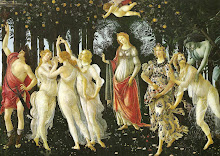 For some reason I cannot post images from CC, so as a substitute, here is a picture I found on Google:http://anmolastrologers.files.wordpress.com/2009/07/numerology11.jpg
For some reason I cannot post images from CC, so as a substitute, here is a picture I found on Google:http://anmolastrologers.files.wordpress.com/2009/07/numerology11.jpgLast class we discussed the short story “Where Are You Going, Where Have You Been?” I must say that I thoroughly enjoyed it. I was able to capture a deeper meaning of the story thanks to my fellow class mates.
Those who were in section C2 that afternoon might remember my unusual connection between the Bible and the numbers 33, 19, and 17. Of course, this was discovered when I did some background research on the story.
Anyways, I am going to write what I tried to explain that day. The biblical connection is as follows. 33 refers to the 33rd book(Book of Judges), 19 is the chapter number and 17 is the verse number. Interestingly, the Book of Judges is a Bible written in Hebrew and when you look in it as I say, you are supposed to see that there is a line which goes, “Whither goest thou? And whence comest thou?” Does this ring a bell? Yes, it is the title of the short story. When I saw this I was shocked for words and I thought that Ms. Oates was one hell of a writer!
Those who were in section C2 that afternoon might remember my unusual connection between the Bible and the numbers 33, 19, and 17. Of course, this was discovered when I did some background research on the story.
Anyways, I am going to write what I tried to explain that day. The biblical connection is as follows. 33 refers to the 33rd book(Book of Judges), 19 is the chapter number and 17 is the verse number. Interestingly, the Book of Judges is a Bible written in Hebrew and when you look in it as I say, you are supposed to see that there is a line which goes, “Whither goest thou? And whence comest thou?” Does this ring a bell? Yes, it is the title of the short story. When I saw this I was shocked for words and I thought that Ms. Oates was one hell of a writer!

ahhh, great stuff! Thanks so much for checking this out! There does seem to be a plethora of interpretations on the Internet (including one teacher who claims to have interviewed Oates about the numbers and insists that she said they were random - I don't believe this for a second!) but this does seem to be more than an obvious reference to the title of the story, and fits in with the other biblical themes.
ReplyDeleteYes, she's one hell of a writer all right! (no pun intended) ;)
Hahahaha! I think it would be foolish to believe those numbers were selected at random. Moreover, it would underestimate Oates' literary ability. I think the existance of many interptretations just prove how brilliant she is.
ReplyDeleteIndeed, the more the interpretations, the greater the writer - she is skilful enough to exploit ambiguity.
ReplyDelete..which equals to more fame. I admire smart women like her :o)
ReplyDelete